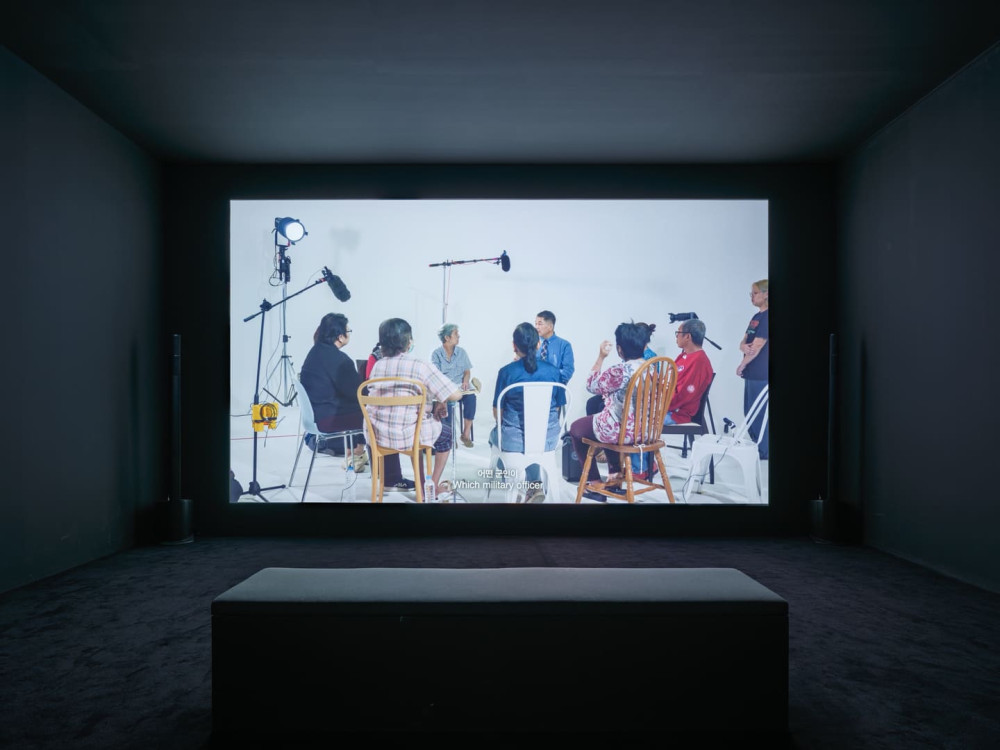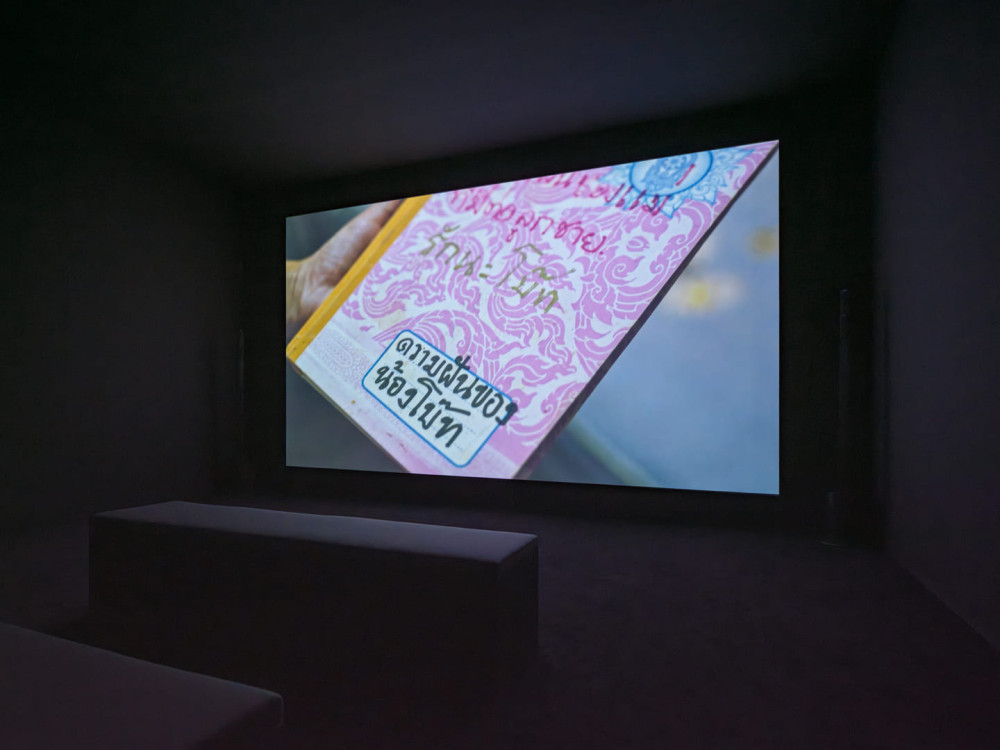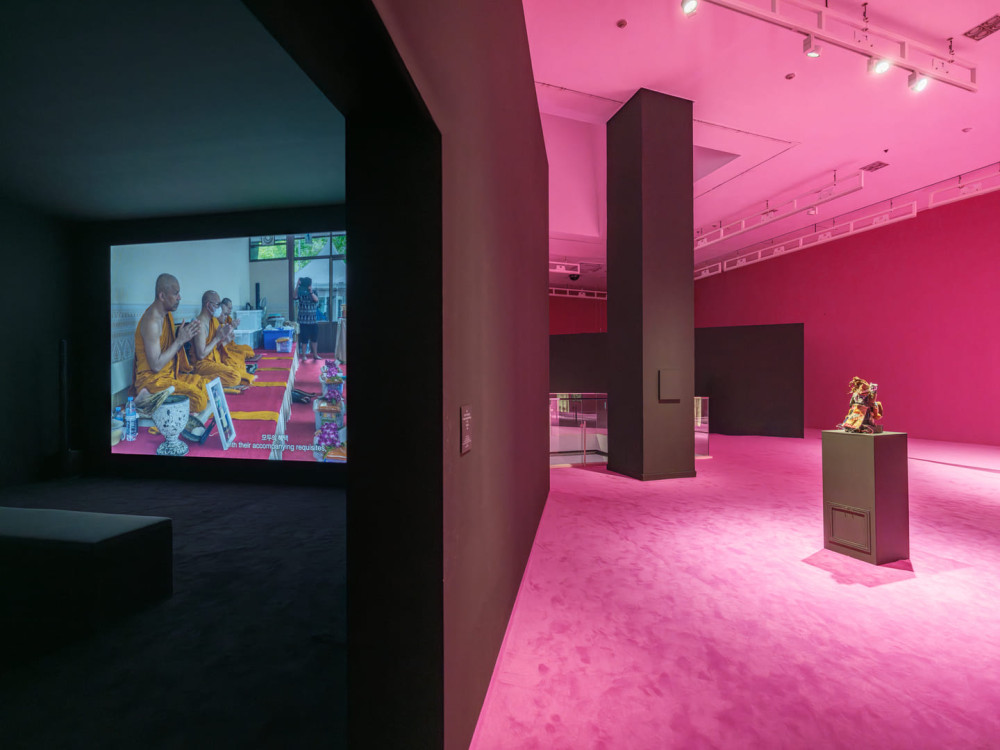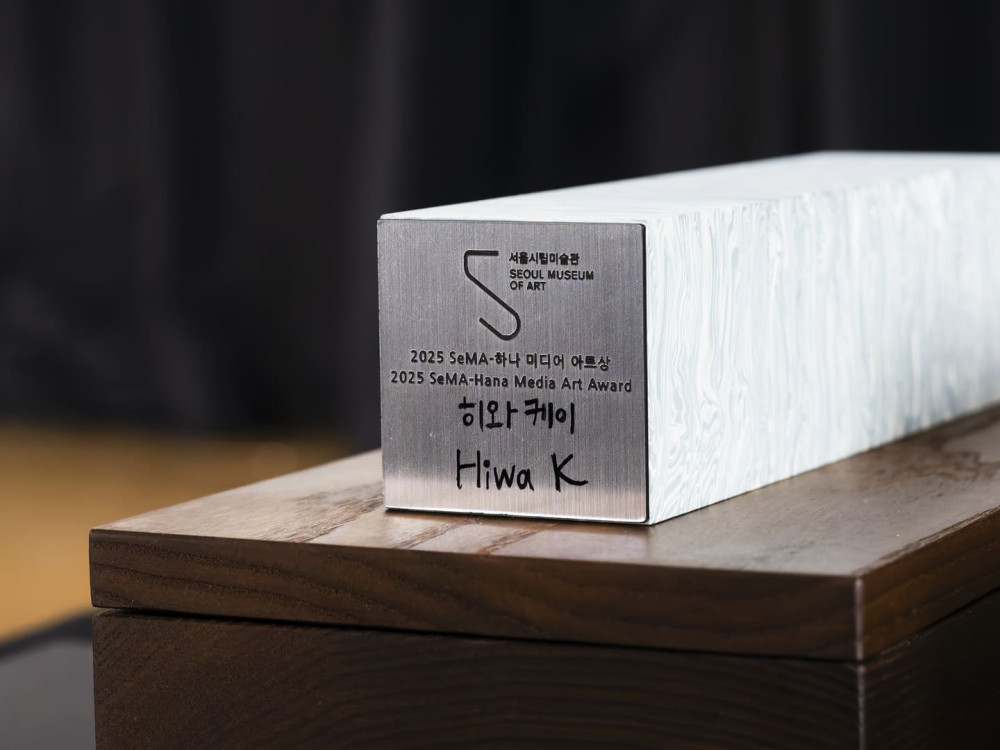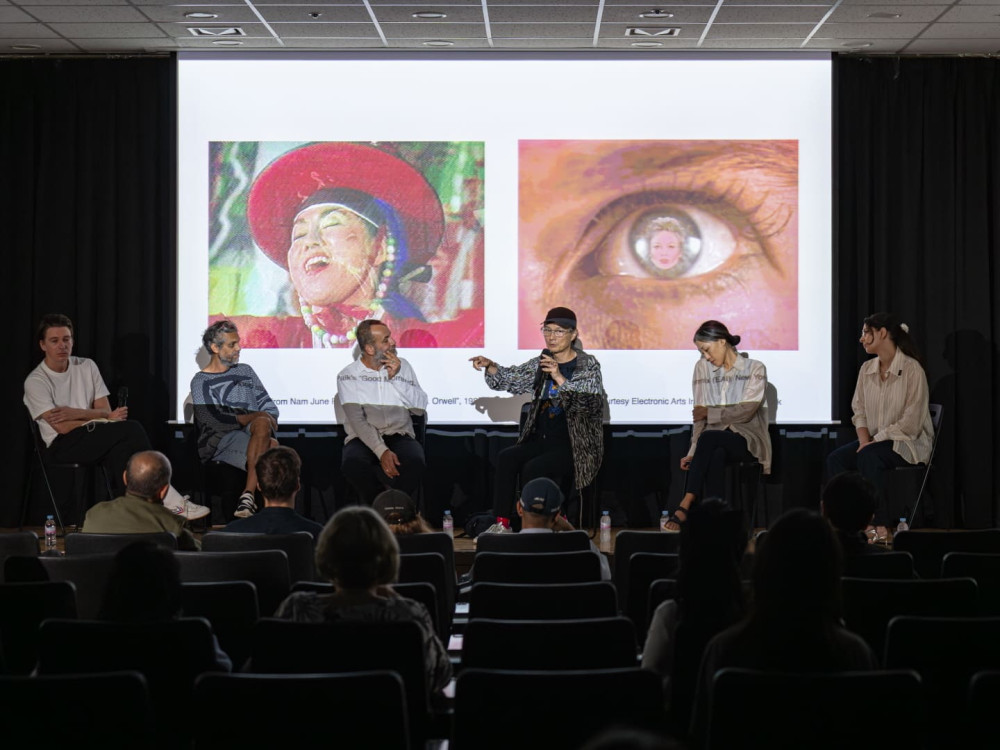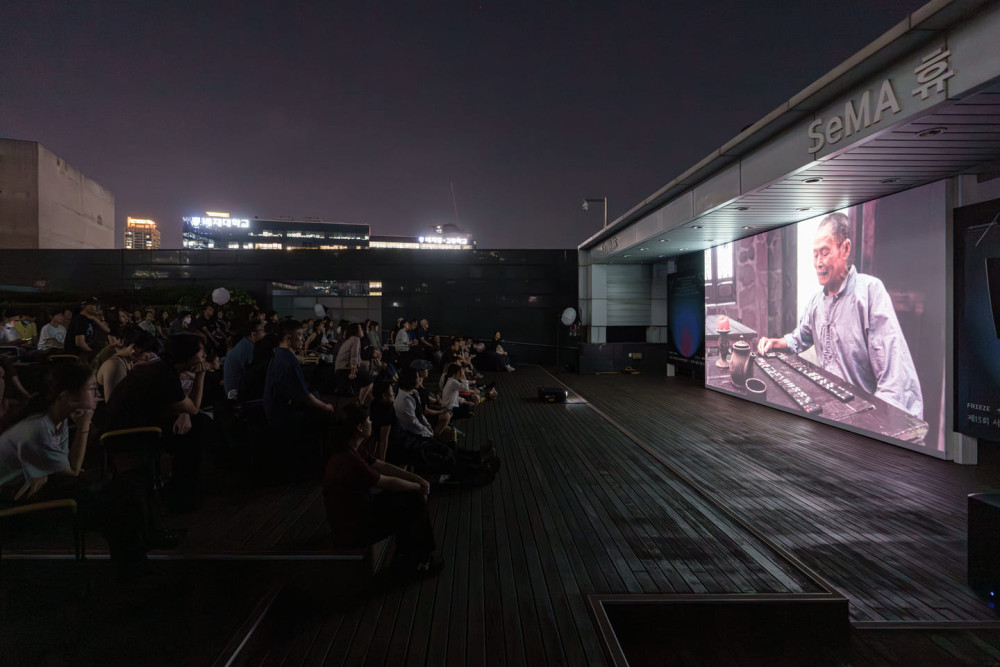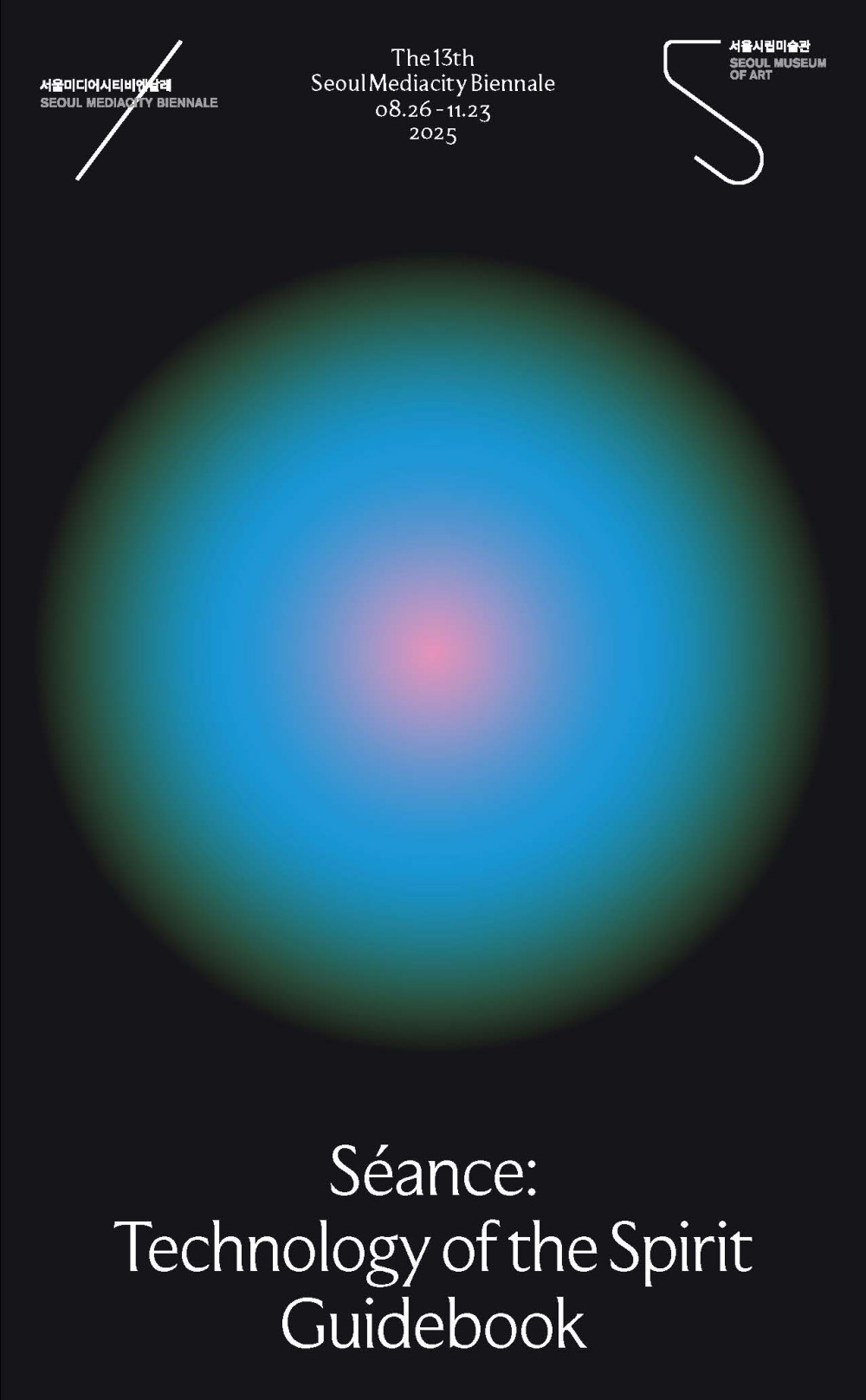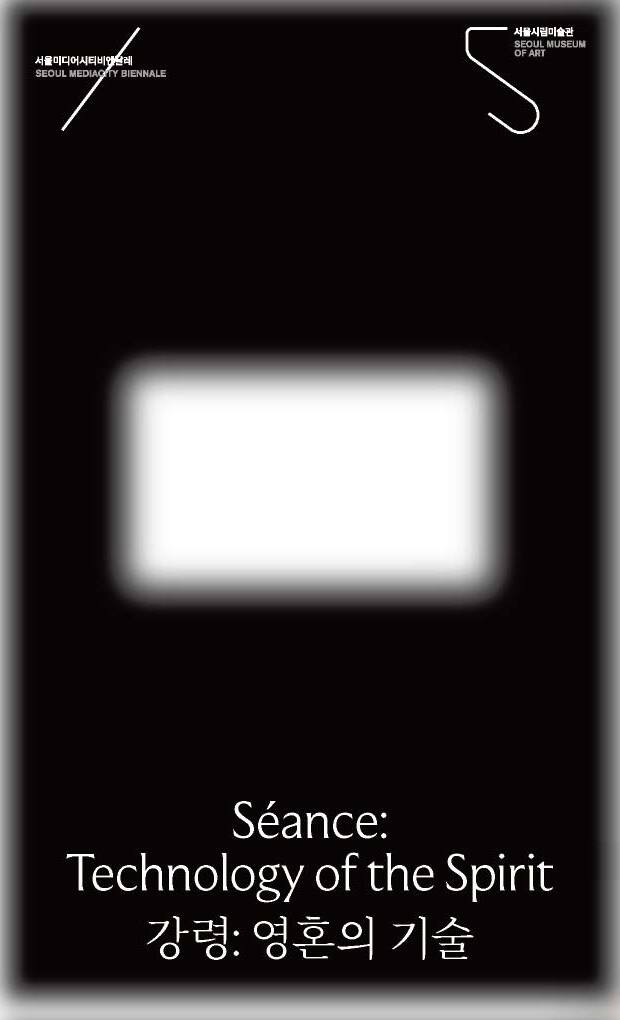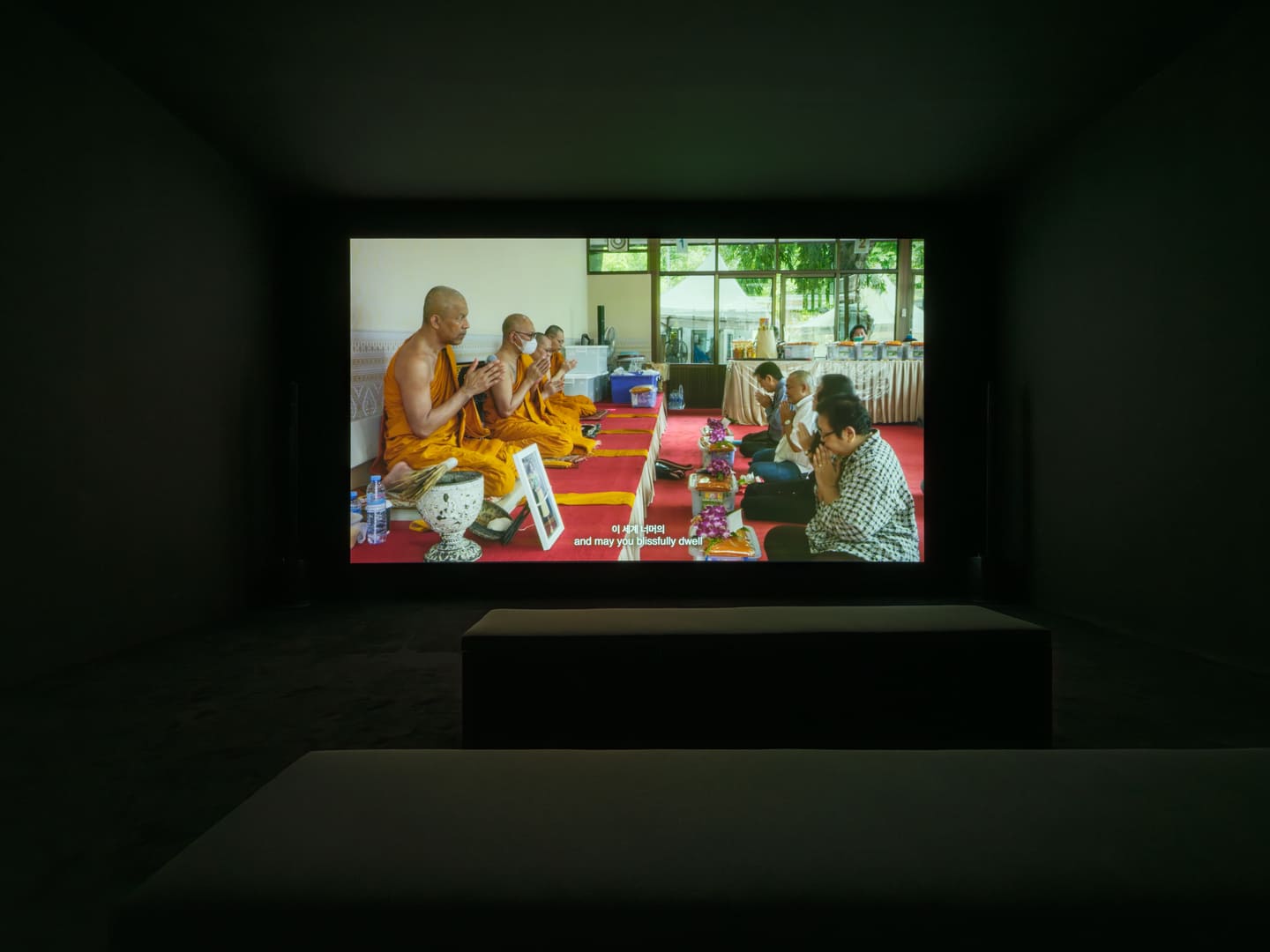
Anocha Suwichakornpong’s films reveal how political trauma moves like a spirit through our lives, unsettling what we see, hear, and remember. She constructs a cinema of haunting, in which the historical violence that is her subject is never depicted directly but instead runs through the world of the film like a metaphysical disturbance.
Commissioned for the 13th Seoul Mediacity Biennale, Narrative stages a rehearsal for a film about the fictional trial of those responsible for the 2010 massacre of pro-democracy protesters and civilians by military forces in Bangkok. Filmed on the fifteenth anniversary of the event, as Thailand’s public prosecutor continues to resist calls for a civic trial that would correct the historical record, the testimony of eyewitnesses is interleaved with footage of the making of the feature film for which Narrative is a sketch.
By revealing the artifice of her own project, the filmmaker forces the viewer to reflect on how history is constructed. This does not undermine art’s capacity to effect social change, but instead reminds us that both “real” and “fictional” narratives depend for their credibility on supporting constructs. It is the “official” histories that more often occlude them, laying claim to a monopoly on truth in order to delegitimize any voice that contradicts power.

